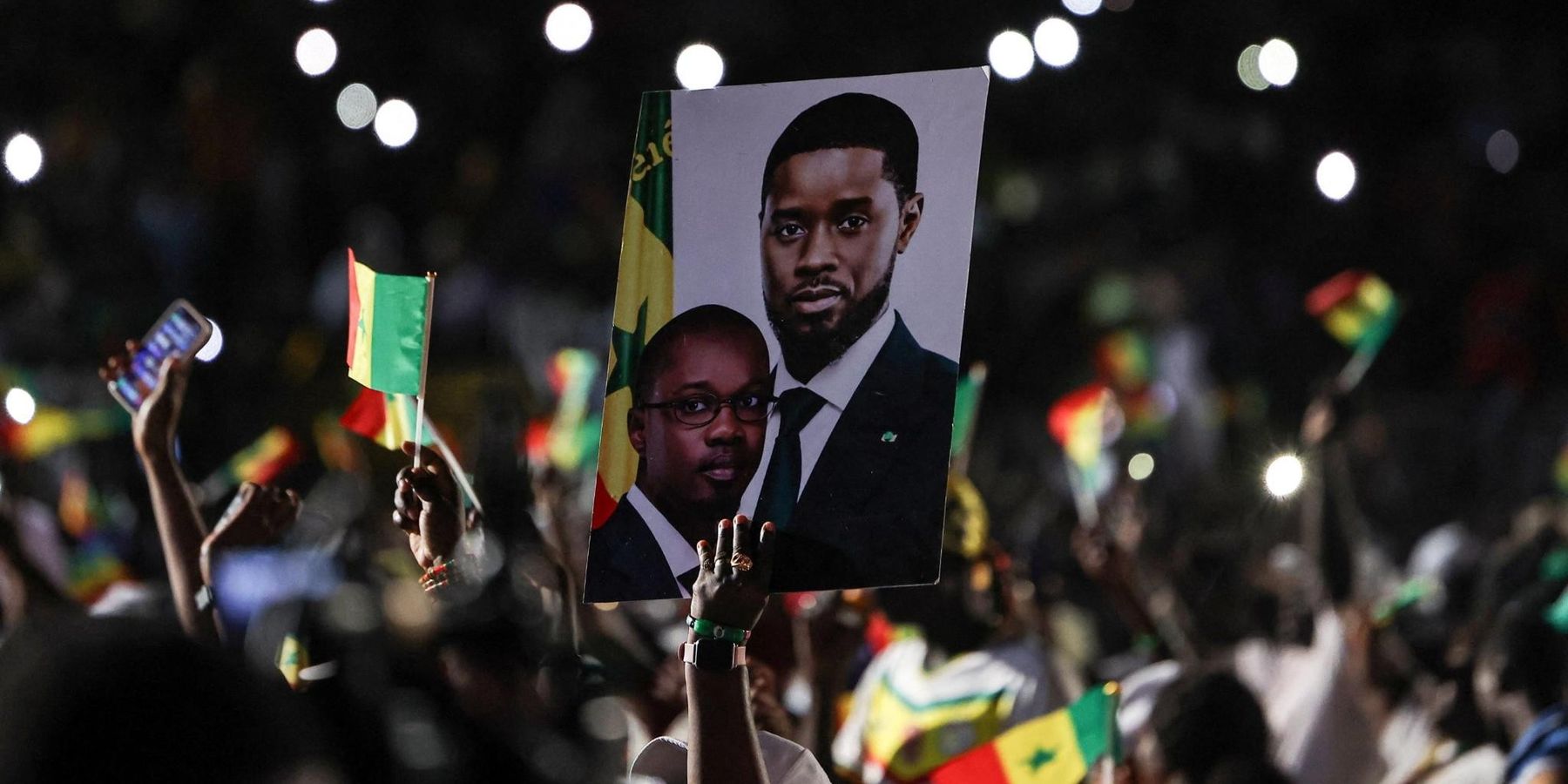The Patriotes africains du Sénégal pour le travail, l'éthique et la fraternité (PASTEF) party — the party of Senegalese president Bassirou Diomaye Faye — won handily in Sunday’s parliamentary snap elections, giving the president a strong mandate with which to govern.
Faye, 44, was inaugurated president of Senegal on April 2, only a few weeks after being released from prison following a sentence he served for "spreading false news, contempt of court, and defamation of a constituted body" for a social media post he made questioning injustice within the country’s judicial system.
Since taking office, Faye has set forth an ambitious agenda and has sought to make Senegal a power within West Africa, a region that has struggled in recent years with the spread of armed group violence and numerous coups that have toppled governments.
Faye has taken a lead in efforts to warm relations between Senegal and the junta-led countries of Mali, Burkina Faso, and Niger. All three of these states have experienced coups in recent years and have since left the West African regional body of economic and political integration, ECOWAS.
Faye has been one of the few heads of state in Africa that has visited Burkina Faso and Mali in an effort to mend ties with the junta leaders. He was also named by ECOWAS as its special envoy tasked with warming relations between these three states and the regional bloc.
Rather than holding a more traditional perspective — that economic and political seclusion caused by isolating the junta governments will force them to reinstitute a constitutional democracy — Faye has operated under the realist belief that it’s better to take the governments of these states as they are, and work with them to try to solve mutual concerns.
In other words, engaging with them rather than isolating them, Faye believes, is more likely to bring them back into the diplomatic fold, which will lead to greater political and economic cooperation.
Faye’s ambitions extend beyond regional diplomacy. Among Faye’s most ambitious proposals is a 25-year plan to improve the country’s justice system and political and economic sovereignty, which he argues has been infringed upon by Western economic and political players.
Senegal 2050, as the plan is known, lays out goals for the country to meet over the next quarter century, including massively reducing inequality, connecting its natural resources to the global economy, building sustained industry in Senegal, and diversifying the economic makeup of the country.
Among the plan’s central components is an effort to move past Western dependency. Faye’s Minister of the Economy has been critical of past Senegalese regimes’ willingness to strike foreign debt agreements, which he blames for the country’s current economic strife and inability to break past a suffocating cycle of debt repayment. Senegal’s debt-to-GDP ratio stands at 84%, significantly higher than the sub-Sarahan average of 59%.
American policymakers should not ignore Faye’s arguments or brush off his goals as unrealistic. It would be in Washington’s interest to look beyond traditional lending and aid programs, and instead invest in long-term investment projects, as requested by Senegal, that raise the standard of living for private citizens across the region. By creating long-term job opportunities in down-stream employment sectors based in Africa, the United States can become a stronger partner to Senegal and other African countries.
Doing so would also benefit Americans, as the U.S. private sector would be able to access new markets and do business in places currently beyond its reach.
Faye has also announced that his administration will move forward with the Just Energy Transition Partnership (JETP) program that the EU and a group of wealthy, western countries (known as the International Partners Group (IPG)) announced in 2023. This $2.7 billion plan is aimed at funneling public and private money as well as technical support from these wealthy countries to Senegal in an effort to transition the Senegalese energy sector away from fossil fuels and towards renewable energy options.
Senegal is in the process of working out the details of this multi-billion dollar plan with the IPG, which is expected to be finalized sometime in December.
Winning a sweeping parliamentary majority will afford Faye the ability to move forward on these ambitious goals.
In many ways, Faye represents the future of Africa. He is a young and forward-looking leader who was carried into power on the shoulders of those ready for African states to seize their economic potential and move past traditional relations with Western states rooted in security, lending, and aid. Political and economic sovereignty is the throughline tying together Faye’s foreign policy objectives.
















